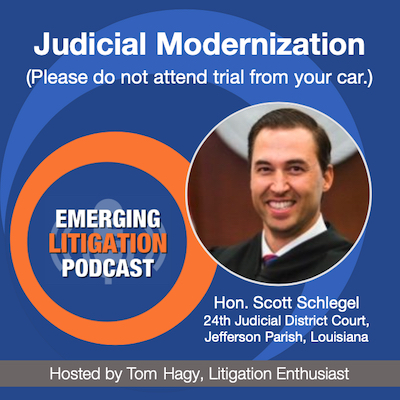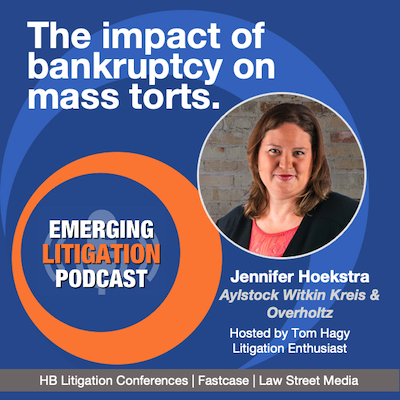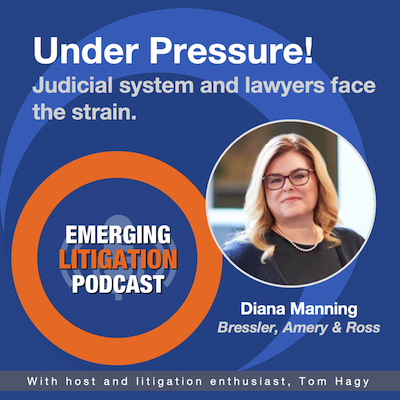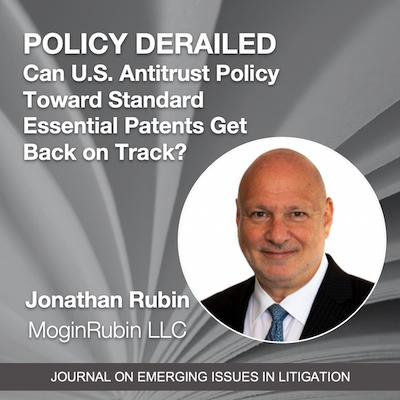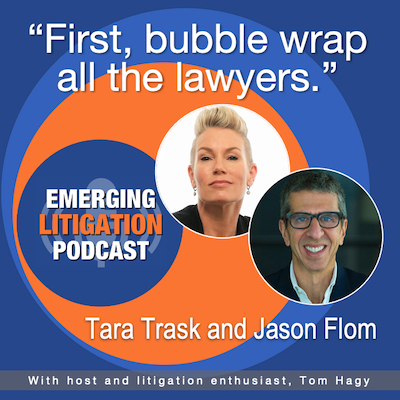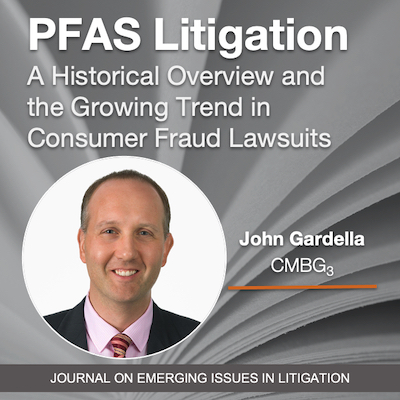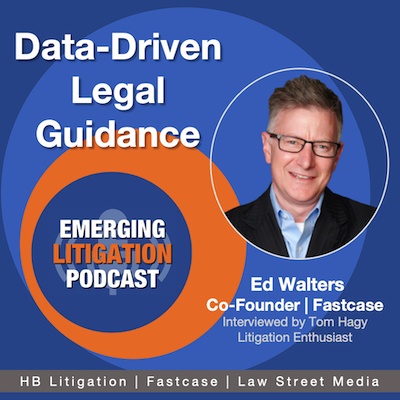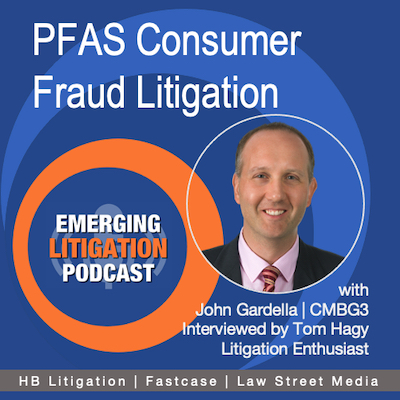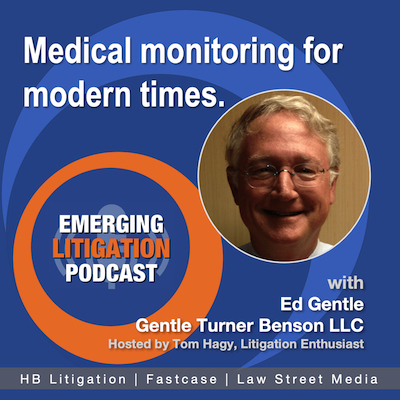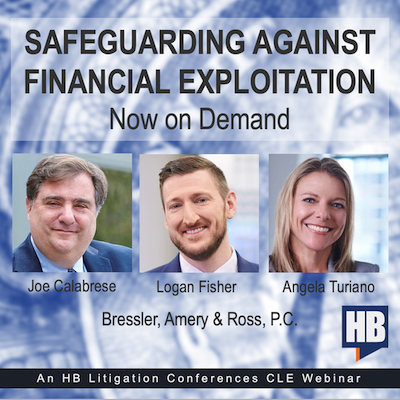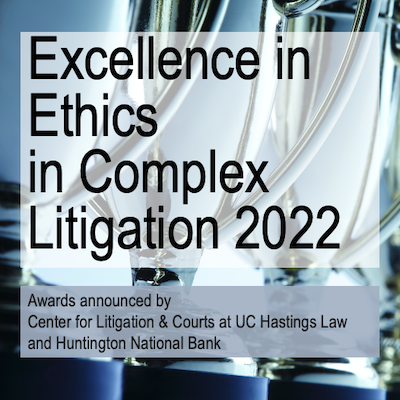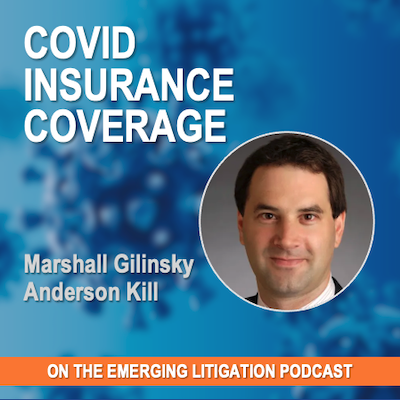Emerging Litigation Podcast
Jury Selection in the Age of Conspiracy Theories and Distrust with Tara Trask
In this episode, we discuss picking juries in an age of misinformation, general distrust, tribalism, unleashed social media surfers, and unorthodox legal strategies unfolding on a daily basis with Tara Trask of Trask Consulting, jury and trial expert. "Jury service is an opportunity for everyday Americans to interact with an important institution, our courts, and play their part as citizens,"Trask says. "The court system could very well be our saving grace in trying to hang on to our democracy." Listen now.
Transforming Legal Workflows with AI: Sara Lord Interviews Tara Emory and Wilzette Louis
In this episode, Sara Lord of Legal Metrics speaks with Tara Emory and Wilzette Louis of Redgrave Data about the game-changing potential of robotic process automation and AI, and how these are not just futuristic concepts but practical solutions to today's legal challenges. As Tara notes, "Wherever your team is spending most of its time on manual tasks, that’s where you can further automate with technology and get the most benefit". Wilzette adds, "AI-driven automation technology can take different aspects of an entire workflow and bring them into a set of processes that a software robot can perform for you. Soon, adopting such technology will be a must for firms to compete". Listen and learn more!
The Intersection of Generative AI and the Legal Profession with Niki Black
In this episode, we discuss the current state and future of generative artificial intelligence and the practice of law with Nicole Black, attorney, legal tech journalist, and author. As she notes, "The legal field is one of the most likely to be impacted by generative AI because the technology can significantly replace certain workflows or assist with those workflows in impactful ways". Listen and learn more!
A Shameless Plug for Our Content Services
Your content marketing is everything you’ve ever dreamed of. Right?

Critical Legal Content was founded by Tom Hagy, former Editor & Publisher of Mealey’s Litigation Reports and VP at LexisNexis, founder of HB, current litigation podcaster and editor-in-chief. CLC’s mission is to help smaller firms and service providers not only create content — blogs, articles, papers, webinars, podcasts (like the stuff on this site) — but also to get it out there. How? Via social media, this website, your website, and potential via our podcast and journal which we publish in collaboration with vLex Fastcase and Law Street Media. The goal is to attract readers and dizzy them with your brilliance.
*Inspired by actual events.
Create content like a real legal publisher.
Emerging Litigation Journal
Fall bellwether trials for social media addiction cases to test novel legal theories
Are social media platforms the next Big Tobacco? A major lawsuit argues they’re designed to be addictive—will the courts agree? Justin Ward explores the upcoming bellwether trials against major social media platforms like Instagram, TikTok, Snapchat, and YouTube. The consolidated lawsuits, involving over 1,900 claims, argue these platforms are deliberately designed to exploit young users and cause addiction—drawing comparisons to cases against nicotine and opioids. Ward examines the complex legal challenges, including First Amendment issues and Section 230 protections, as courts determine whether these claims of negligence and failure to warn will move forward. The trials could set major precedents for social media regulation and corporate accountability.
22 States Sue New York Over Climate Fund, Calling It an ‘Unconstitutional Shakedown’
Tim Zyla examines the high-stakes legal battle between New York and a coalition of 22 states, led by West Virginia, over the state’s newly enacted Climate Change Superfund Act. The law requires energy producers to pay $75 billion over 25 years to fund climate damage recovery efforts. The lawsuit, filed in federal court, argues that New York’s law is unconstitutional, overreaches state authority, and unfairly targets out-of-state energy companies. Plaintiffs claim the Act violates multiple constitutional provisions, including the Commerce Clause, Due Process, and Equal Protection Clauses, as well as federal environmental law. Meanwhile, a pro se West Virginia resident has filed a motion to dismiss the case, defending New York’s actions as necessary for public health and climate accountability. Zyla highlights how this case could set a major precedent for state-level climate initiatives and corporate liability for environmental damage.
When Litigation Financing Goes Wrong, Who Pays?
The bankruptcy of Houston's AkinMears LLP highlights the risks of relying too heavily on third-party litigation financing and the broader implications for transparency, regulation, and financial sustainability in mass torts. The firm filed for Chapter 7 bankruptcy citing more than $200 million in debt owed to litigation funding companies Virage SPV 1 and Rocade Capital. According to Bloomberg Law’s U.S. Bankruptcy Tracker, AkinMears LLP was the only U.S. law firm filing for bankruptcy in January 2025 with $50 million or more in liabilities. In total, 12 large law firms declared bankruptcy in January 2025, up from seven in January 2024 but slightly below the 17 cases recorded in January 2023. Read our report by guest contributor Jennifer Holmes.
HB Webinars on CeriFi LegalEdge
Epiq Class Action Settlement Efficiency
Epiq presents a CLE-eligible webinar Wait Wait ... Don't Settle! Essential elements of effective class action settlements. When it comes to complex class action litigation, once the hard work is done – litigation and settlement – more hard work begins – administering it. But is the deal really ready? After years of arduous proceedings, discovery, motions, appeals, hearings, negotiations, and more, the scope and structure of your settlement has been drafted. Everyone is in agreement. The hard work of the courts, the attorneys, the legal teams, and the litigants is complete. Now it's time to administer the settlement. Send out notices. Cut the checks. Get people paid. Boom! Sit back and relax. Get a claims administrator to take it from there. But wait … you find out that the terms of the agreement, the promises made, the budget established, and the deadlines calendared are not only inefficient, they are completely unworkable. Now the settlement is in jeopardy. The clients are frustrated. The court is frustrated. And you have a headache. That is a situation you, as a class action attorney, never want to find yourself in. The best way to avoid this quagmire is for attorneys to work with a professional and experienced claims administrator before you agree on settlement terms, someone who has been to this rodeo many, many times before. If you want smooth execution of your claims program, they must be on your team as you pull the pieces of the settlement together, not afterwards. Join us for a complimentary CLE webinar on Thursday, April 8, 2021, for a practical discussion based on Seven Elements of Effectively Settling Class Actions led by a class action litigator turned class action settlement expert, who will moderate a discussion with two highly regarded class action attorneys who have been involved in a number of high-profile complex cases. On [...]
Lien Resolution: Government & Private Plans Get Aggressive (Against Attorneys)
Includes Nearly 75 minutes of insights from experienced professionals. CLE credit: 1+ (subject to bar rules). For CLE questions: CLE@LitigationConference.com The complete Power Point presentation. Continued access to the complete recording for later use. Answers to your questions via email to the presenters or write to HB and we will be sure to contact the speakers. What can you do to settle personal injury suits cleanly and avoid costly litigation and penalties? What recent cases can inform you about protecting your settlements and, as attorneys, yourselves, from post-settlement federal lawsuits? How can your firm set itself up to meet government expectations? What role might experts play in navigating these pitfalls? Medicare Advantage (42 USC § 1395w-22) Federal Medical Care Recovery Act (FMCRA) (42 USC § 2651) Armed Forces Act (10 USC §1095) Veterans’ Benefits (38 USC §1729) Third-Party Collection Rules (32 CFR 537.24; 38 CFR 17.101, etc.) Set-Asides under the Medicare Secondary Payer Act (42 USC § 1395y(b)(2)] On Demand Registration Lien Resolution Government & Private Plans Get Aggressive (Against Attorneys!) On Demand | Recorded September 2020 It is increasingly common these days. Personal injury attorneys settle a case, only to find themselves sued by a U.S. Attorney for failing to reimburse Medicare for conditional payments as required by the Medicare Secondary Payer Act. In some cases the attorney may be required to pay fines in addition to the reimbursements and interest, a costly proposition. Are you up to speed on issues surrounding Medicare Advantage, TRICARE, veterans’ claims, and Medicare set-asides? Join nationally recognized healthcare lien and resolution expert Franklin P. Solomon and go-to lien resolution provider Brett Newman as they offer a practical, in-depth CLE presentation. Franklin P. Solomon, Esq. Attorney & Founder, Solomon Law Firm A graduate of Rutgers University School of Law at Camden, Franklin Solomon is based in [...]
Telepsychiatry: Mitigating the Risks
REGISTER Registration Includes Nearly 90 minutes of insights from experienced professionals. CLE credit: 1+ (subject to bar rules). For CLE questions: CLE@LitigationConference.com The complete Power Point presentation. Continued access to the complete recording for later use. Answers to your questions via email to the presenters or write to HB and we will be sure to contact the speakers. Understand the risks associated with telepsychiatry and how to manage them. Telemedicine has emerged as an important solution for healthcare in general and psychiatric medicine specifically during the current global pandemic. Remote access for sub-practices including addiction counseling have been commonly used. Our panel of psychiatric professionals who have served as expert witnesses and attorneys who counsel and represent physicians have prepared a 90-minute session to share insights with attorneys, physicians, healthcare providers, risk professionals, and more. Agenda Examining procedures and best practices that exist for ensuring confidentiality in a telemedicine practice How do you draft a telepsychiatric consent form? What is the emerging standard of care for telemedicine? Will the standard of care for telemedicine become a national standard? (Should it?) Review the case law addressing telemedicine or telepsychiatry How do the HIPAA regulations and HITECH privacy laws impact telemedicine? How have the HIPAA regulations and HITECH privacy laws been relaxed during the pandemic? Will the relaxed HIPAA and HITECH regulations impacting telemedicine continue past the pandemic? Which technical platforms are preferred? Which ones to avoid? Panelists Mark Levy, M.D., Medical Director at fpamed David Kan, M.D., UCSF Psychiatry Department and the California Society for Substance Abuse Medicine Ayesha Ashai, M.D., associated with fpamed Stephen M. Fatum, J.D., Partner, Barnes & Thornburg LLP Angela W. Russell, J.D., Partner, Wilson Elser Moskowitz Edelman & Dicker LLP Meet our physician and attorney panelists. Mark Levy MD Medical Director fpamed Dr. [...]

